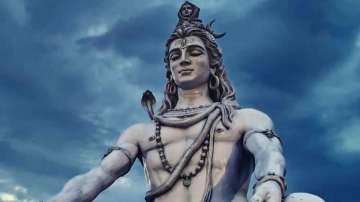Mahashivratri is celebrated with much fervor across India. Devotees of Lord Shiva observe fast on the festival and worship him. While praying to Lord Shiva on Shivratri, devotees offer multiple things on Shiva Lingam like Bel Patra, Dhatura, flowers and milk among other things. However, it is said that Tuli or Basil leaves should not be offered to Lord Shiva.
According to a story in Shiva Purana, there was a demon named Jalandar. The evil demon was blessed with a boon that empowered him until his wife, Vrinda, lost her sanctity. He had troubled many Gods and Goddesses but because of his powers, none of them could hurt him. In order to defeat Jalandar, they reached out to Lord Vishnu and Shiva for help. To solve their problems, Lord Vinshu disguised himself as Jalandar and met the latter's wife. As soon as Vrinda touched his feet, the boon was lifted and Lord Shiva killed the demon.
Related: Mahashivratri 2021: Things you should and shouldn't offer to Lord Shiva
When Vrinda learned that she was cheated upon she broke down. Later, Vrinda received the boon and was reborn as the holy basil. Because Vrinda knew that Lord Shiva killed her husband, she refused to worship him. And hence, basil or tulsi leaves are not offered to Lord Shiva.
Here's what you should do on Mahashivratri:
According to Acharya Indu Prakash, on the day of Shivratri, one should start with applying sandalwood paste to the Shivling and worship Lord Shiva. The shiving is first bathed with Panchamrit. After this, the mantra 'Om Namah Shivaya' should be chanted. Also, after Lord Shiva's worship, cow dung cakes should be burnt with sesame, rice and ghee. Then offer any one whole fruit. People usually offer dried coconut. A person can attain heaven by observing the fast, feeding Brahmins and donating lamps on this day.
Related: Maha Shivratri 2021: Know history, significance, muhurat, vrat katha, how to celebrate this Hindu festival
